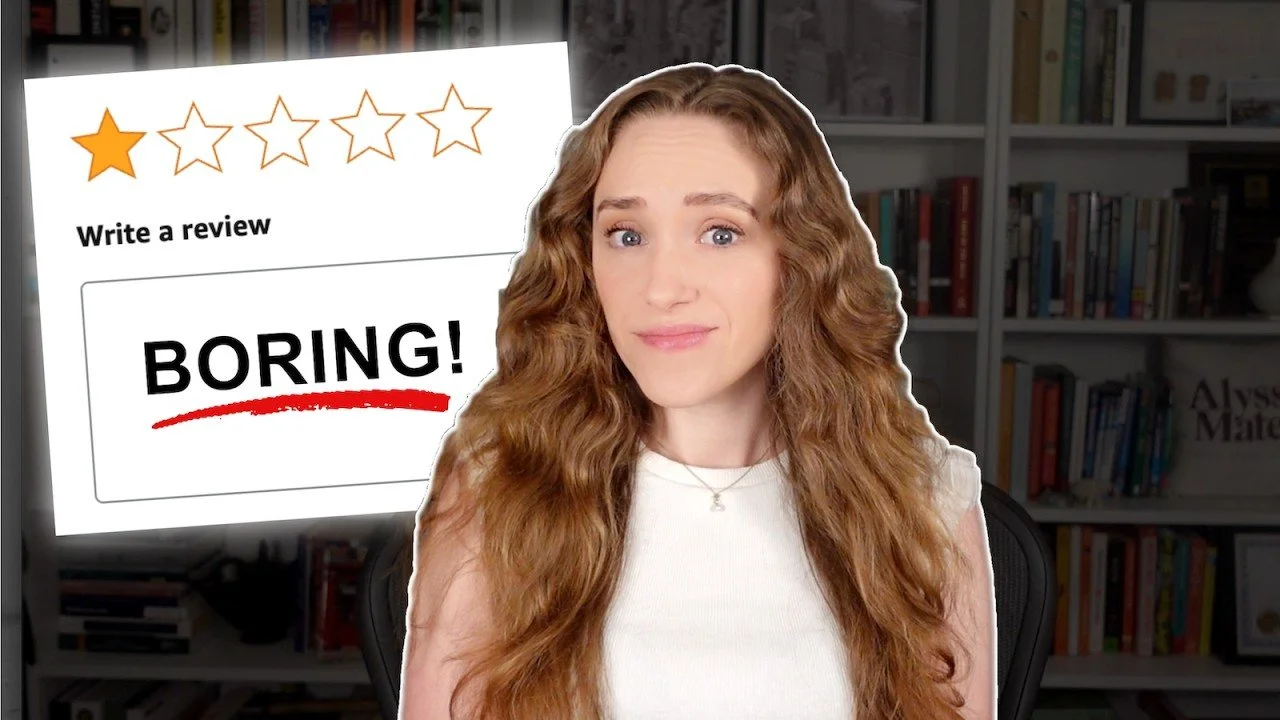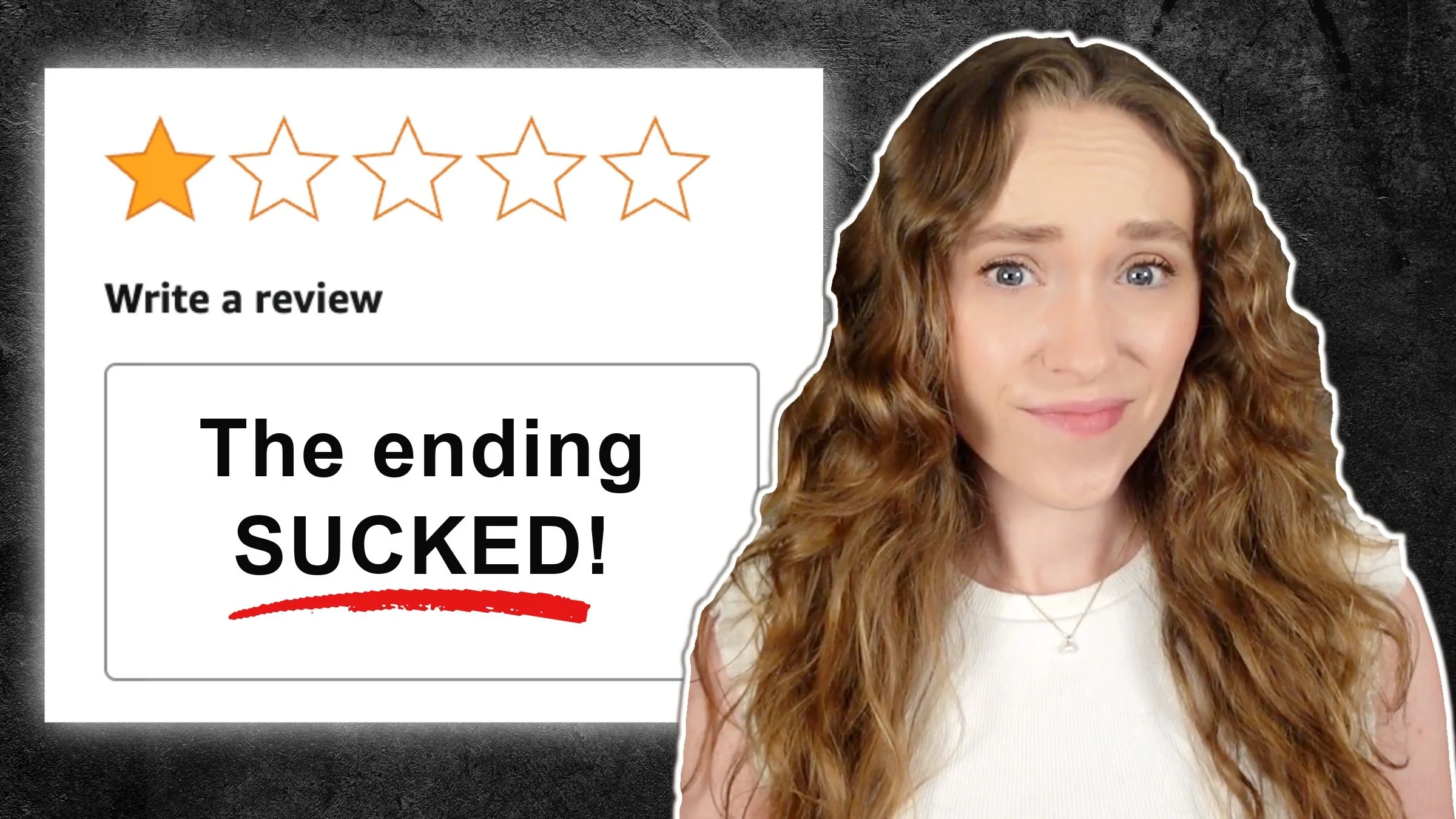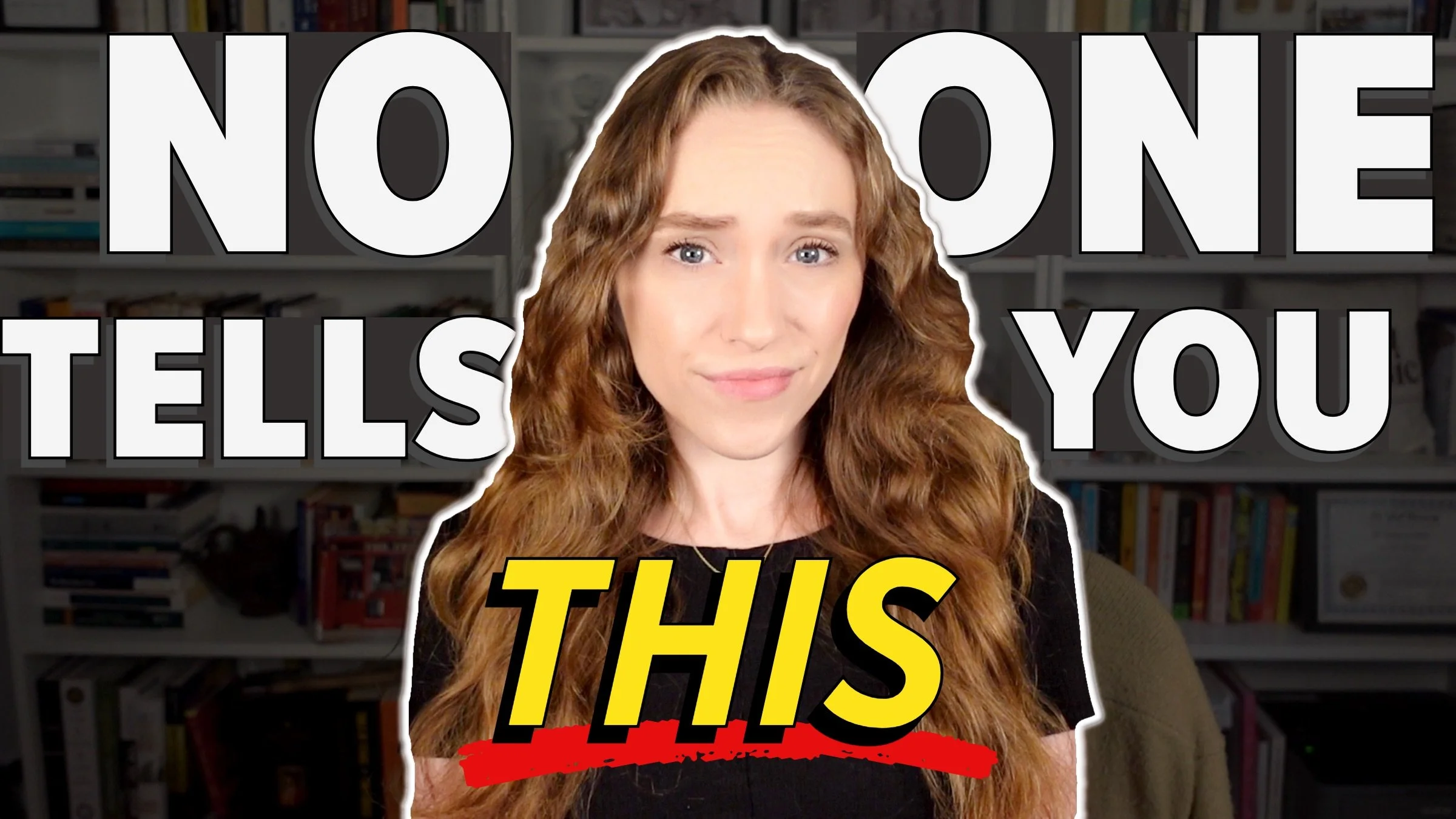Advice on Writing a Book from a Professional Editor
HIT PLAY OR READ THE POST BELOW:
As a book editor, I am so lucky to be able to say that I spend most of my working hours tucked into a story. I've been editing books in some capacity for nearly a decade, between my years spent working in the publishing industry at a literary agency and at a division of Random House, and my years running my own independent developmental book editing business. I've edited hundreds of books across my career…and still counting!
So what have I learned about writing, editing, and publishing after working through hundreds of edits? Hopefully, this advice on writing a book will be helpful to you if you are somewhere along your own writing and publishing journey.
1. A Great Book Needs Great Writing and a Great Story
Many authors are first and foremost concerned with whether their writing on a sentence level is good or bad. And while the words that you use to string together sentences are, of course, very critical in creating a good story, it's not enough to just be a solid writer.
The tactical strategies that you use to communicate your story to a reader are ultimately just one component of creating a great, engaging, and compelling book. You also need the elements of the story itself to be strong and pull the reader in and keep them engaged all the way through to the end.
As a developmental book editor, I often find myself more interested in questions of story over prose. For instance, how do we make this character more engaging? How do we tighten up the pace? How do we amplify the suspense and tension and urgency?
I've read and edited books where the writing is super solid, but the story isn't there. And on the flip side, books where the premise and story are super compelling, but the writing isn't there. One of my top pieces of advice on writing a book is to realize that you really need both.
2. Editors Have Different Strengths
When I first started editing independently, I offered an array of services: editorial assessments, developmental edits, line and copy edits, etc. And I took on many projects across multiple different genres, such as short stories, novellas, and non-fiction book proposals, in addition to full-length novels.
But I quickly realized that what excited me the most and what I was best at was developmental editing for narrative works, including novels and memoir and other narrative nonfiction. So, I started focusing my services just on that component.
Other editors have a knack for grammar and clear prose, which makes them amazing copy or line editors. And editors who have a really strong sense of detail could be excellent proofreaders. Just as every author brings and flexes their own strengths in their story, every editor also offers their own strengths that they can bring to the table. That's because both are ultimately creative skills.
3. There Are Infinite Ways to Write a Book
I work with authors who are self-identified pantsers and authors who are meticulous plotters with very robust outlines that they create even before they put a word on the manuscript page. Some of the authors I work with swear by the Save the Cat! method, while others follow no particular writing technique or structure at all.
I honestly believe that no single writing technique is better or worse than another. No matter which way you write, you have the capacity to create a compelling, unique, and engaging story that will resonate with readers.
My advice on writing a book is to embrace whichever writing practice works for you. What is going to help you get your story on the page? If it's an outline, do it. If you need to come to the page without any outline whatsoever and just freewrite, do that. After all, a lot of the magic of developing and discovering your story comes through the revision process.
I’ve found that authors who embrace revisions and developmental editing as part of their process, whether they are plotters or pantsers on their first draft, often have the most successful and compelling stories. So, if you're feeling discouraged because the way that you write isn't the way that another author you admire writes, don't worry about it. This is an art form for a reason. Just like every painter has their own process, so does every writer.
4. No Book Is “Unredeemable”
Sometimes an author that I work with will ask me if their book is even worth pursuing or if it's unredeemable, and they should trash it and just start over or work on something else entirely.
My answer to this conundrum is always the same: you should pursue it if you feel compelled to and you feel passionate about it. I'm never going to tell you to not pursue a story that’s calling to you. Perhaps there are ways that you can tell it in a more compelling way or tweak certain aspects of the story to better resonate with readers. But I don't hear a story idea and then simply say, "That's a bad idea, don't write that book."
After all, there are so many examples of books that maybe sound boring when you describe their premise but are actually incredible. One that comes to mind is The Remains of the Day, which, in essence, is a story of a butler reminiscing on his time working at an English country estate.
If you are committed to this story and you understand the value of revisions and developmental editing, then you can turn this story into something that you're proud of and confident sharing. Perhaps the next version of the story is drastically different than the original one that you produced, but that's okay. Sometimes the revision process requires finding and drawing out the true story.
That said, if you're feeling totally creatively drained and you want to give up this story, then by all means do so. It's okay to DNF (do not finish) a book that you're writing, just as you can DNF a book that you're reading. Spend your valuable writing time developing the stories that you feel called to tell.
I hope you found some of this advice on writing a book helpful. Thank you so much for reading, and happy writing!






